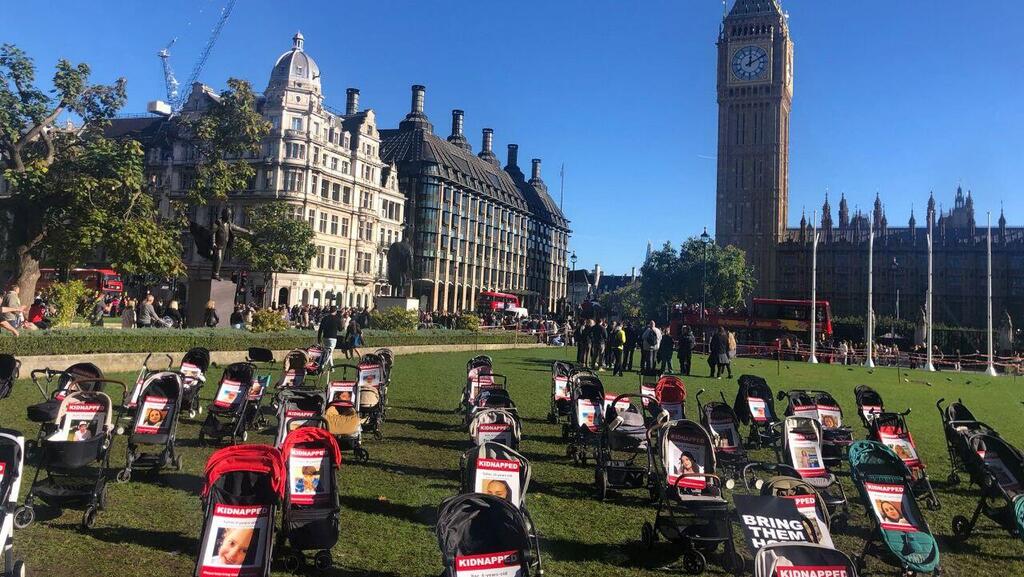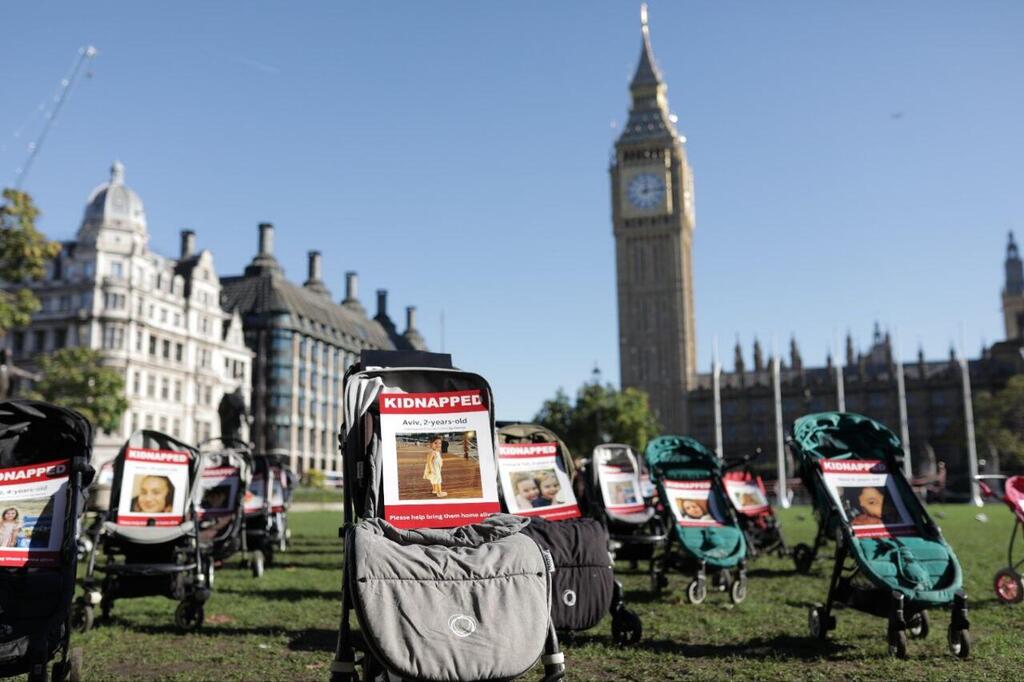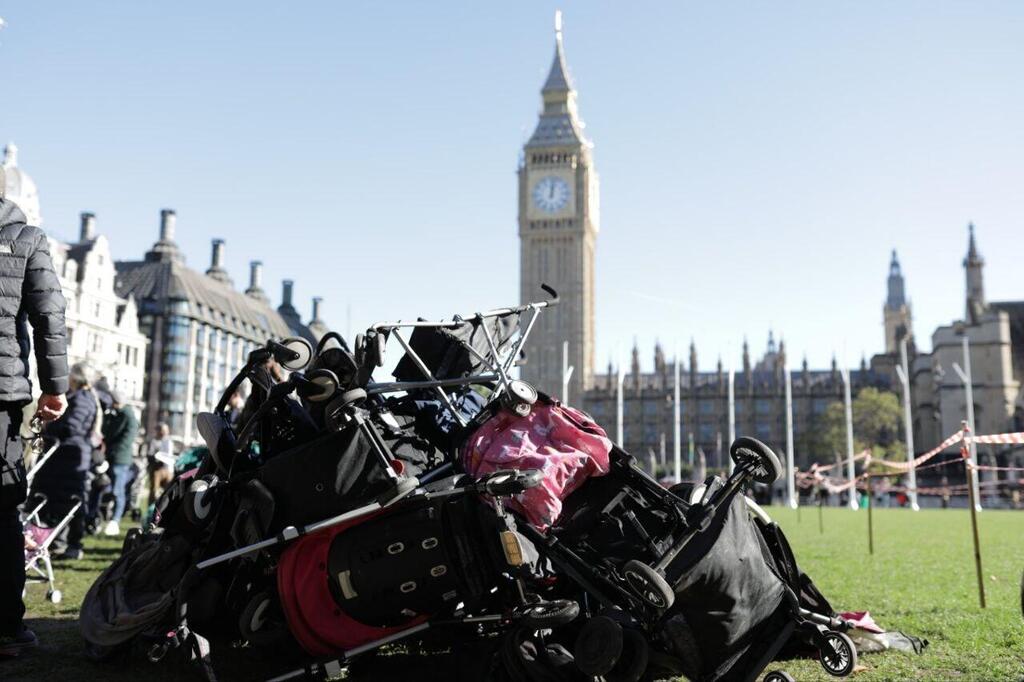Getting your Trinity Audio player ready...
Dozens of empty baby strollers were displayed Sunday on the lush green lawn of Parliament Square in London as a solemn reminder of the unbearable ordeal endured by dozens of Israeli parents whose kids are held hostage by Hamas in Gaza.
Read more:
Initiated by Israeli women living in the United Kingdom, dozens of empty strollers were placed in the square. Adorning them were pictures of the abducted children still held in Gaza by Hamas terrorists, without any sign of life reaching their families.
While some figures, like climate activist Greta Thunberg, turned a blind eye to both the heinous massacre carried out by Hamas and the kidnappings, the simple and heartfelt display in Parliament Square serves as a poignant outcry from the Western conscience and its painted façades.
One of the organizers of the protest is Mor Tobin, a mother of two who has been living in London for the past five years. She moves among the strollers, arranging photos and directing the photographers. In her neighborhood, she hangs posters with pictures of the abducted boys and girls, even though some of them may not last even ten seconds before they are torn down.
"The feeling of living far away is very difficult; we are all overwhelmed with depression," she says. "All of us were very active in Israel, seeking ways to contribute to the country and make it better. Here, we managed to unite a significant number of parents around the children. It's a feeling that every parent can relate to, that of pushing an empty stroller, whether you support Israel or the Palestinians. We want to touch the hearts of everyone."
The exhibition took place the day after a massive pro-Palestinian demonstration, and there have been numerous reports of unease within the Jewish communities. London has always been a stronghold of the radical left, but the ongoing war is intensifying concerns about antisemitism, alongside deep disappointment with the disappointing responses from influential entities like the English Premier League, the media led by the BBC, and, of course, intellectual circles.
According to Tobin, the sense of security weighed heavily in the preparations for the event. "There was definitely fear; many people were supposed to attend and they were somewhat deterred," she admits.
"But we felt that we were coming to stage a presentation without much fanfare, one that stands silent and doesn't engage in politics at all. There are children here, and God knows what they're going through, who's feeding them, or if they're being comforted. We demand, at the very least, that they are returned safely, or that the Red Cross or organizations take care of their most basic needs."
On the other hand, Tobin notes a sense of solidarity, especially in everyday settings. "Now there's a feeling that the media is searching more for instances of antisemitism and xenophobia," she says, "but we're not in a Jewish school, and for every Israeli child, there are 20 Muslim children, and we haven't felt anything. The school immediately rallied and talked about community and solidarity, keeping the kids away from it. However, we do uncover some unpleasant aspects. It's the first time in five years that I feel the need to downplay my Israeli identity."




